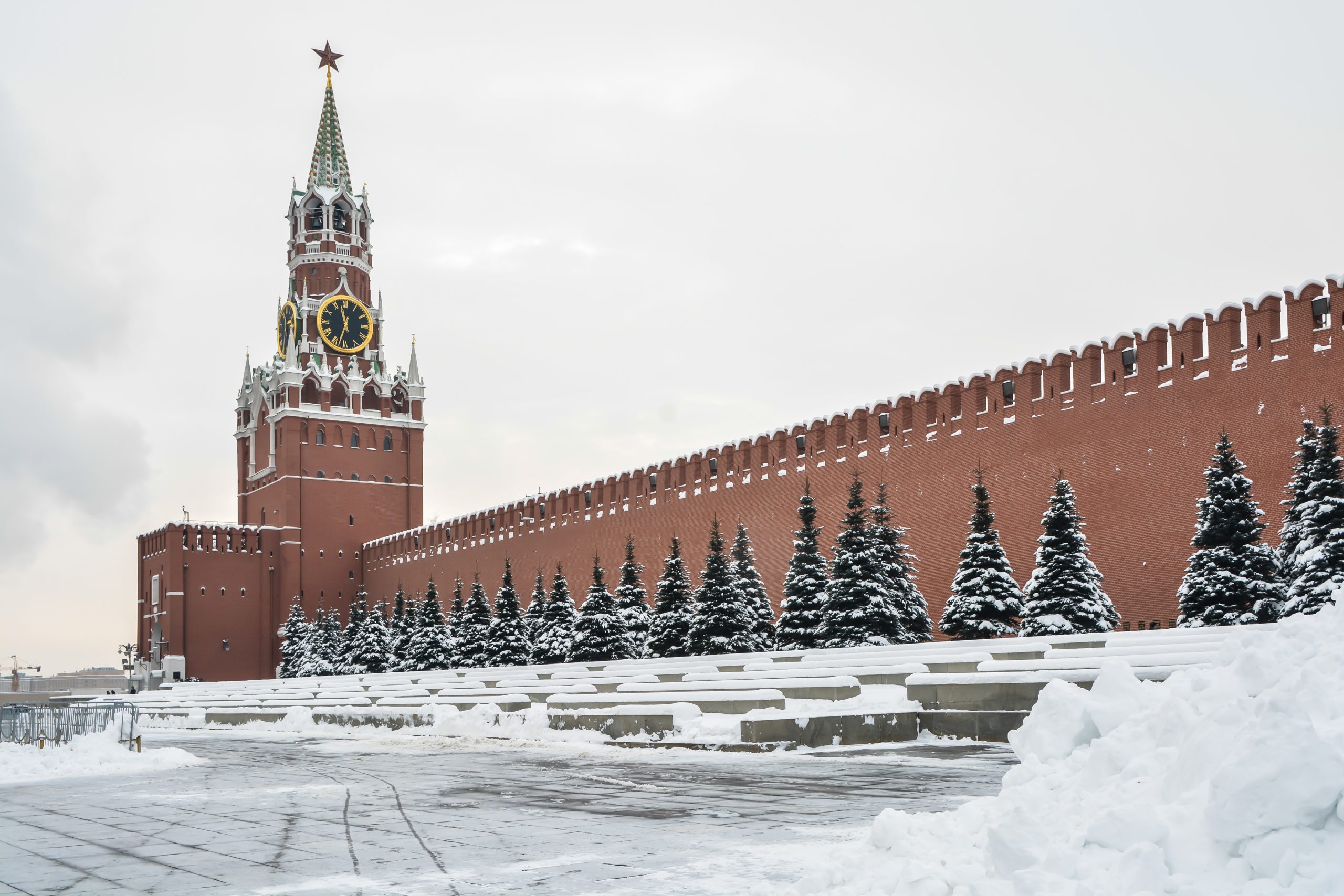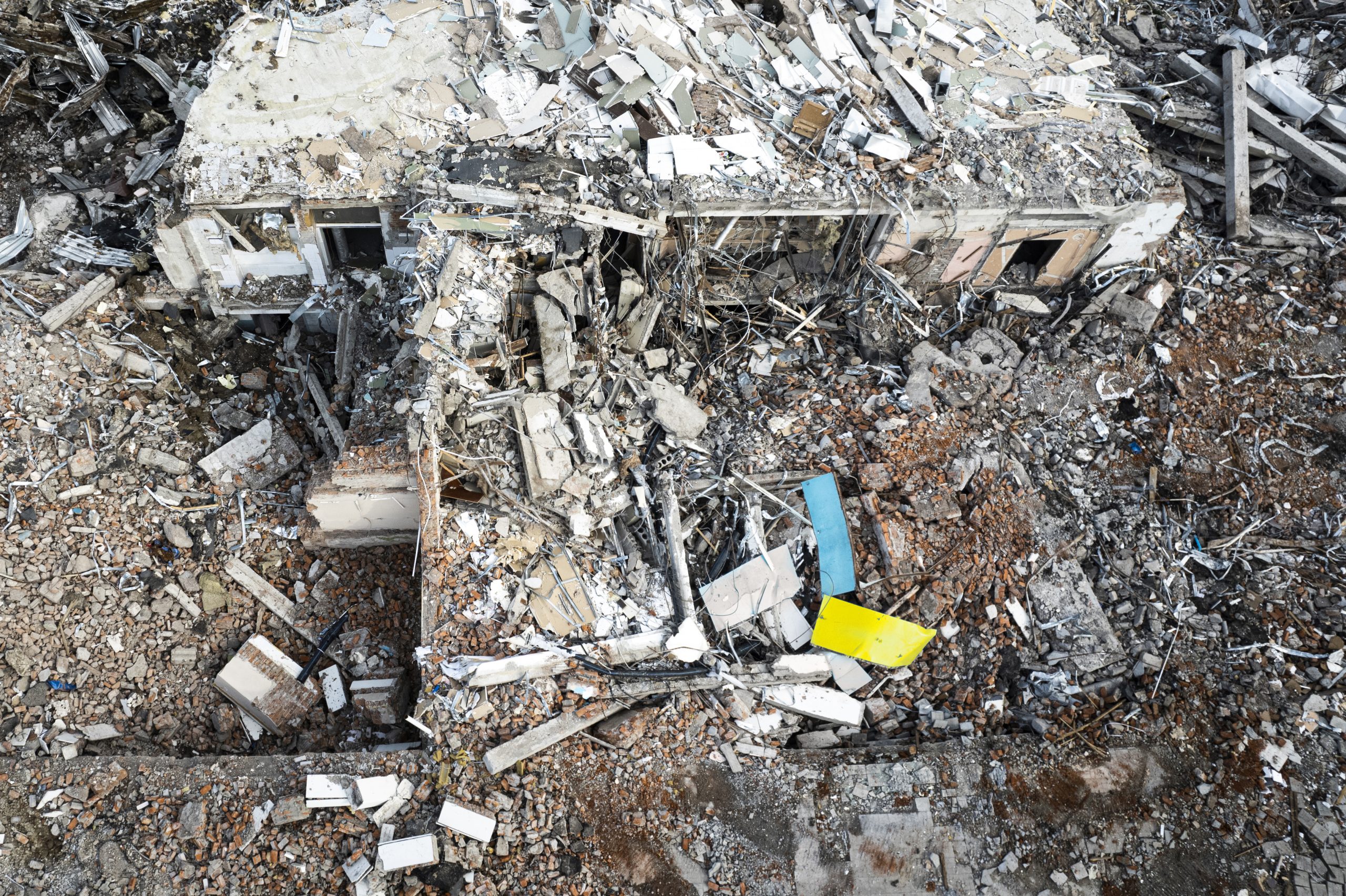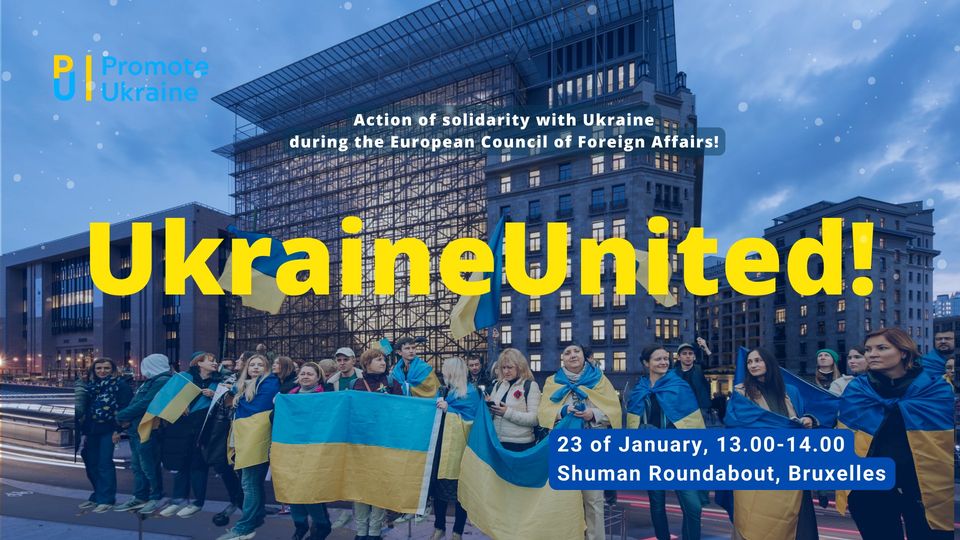Volodymyr Zelensky said at NATO that he intends to improve the humanitarian conditions for people on the occupied territories
In 1944 D-Day started a major push to end World War II. 70 years later the President of France used the day to initiate a peace process to resolve the only current hot war in Europe. On June 6 2019, as leaders of many countries gathered again in Normandy to commemorate 75 years of the Allied landing on the French beaches, the war in Eastern Ukraine is still raging, reaping its somber harvest of dead and injured.
Five years on, it is clear that symbolism, intended or not, did not work. In 2014, François Hollande, then President of France, with the help of German Chancellor Angela Merkel, organized a meeting of Russian President Vladimir Putin with his newly elected Ukrainian counterpart Petro Poroshenko in Normandy. Subsequently, the four leaders met several more times, and the constellation came to be known as the Normandy format for negotiations to resolve the war between Ukraine and Russian-backed militants.
A new initiative for Ukraine
There has been neither any meetings of the four leaders since 2016 nor any progress in the peace process. Since then the composition of the group has changed; however, any hopes that Emmanuel Macron would give a new impetus to the negotiations, have not been fulfilled. Now, a new President of Ukraine Volodymyr Zelensky has taken the initiative. On June 5 representatives of Kyiv proposed his roadmap to the Russians, OSCE and separatists in Minsk. For example, it should create conditions for a durable ceasefire. Nonetheless, it is still unclear what the roadmap exactly foresees.
For any new initiative to be successful, one should understand, why a previous one failed. The main reason why the peace process for Donbas, a region in Eastern Ukraine, has not brought any peace is that the status quo has been in the interests of all main actors. That may sound strange; therefore, let’s check the current situation and compare it with those interests.
Putin’s long game
Putin has not achieved his big goal to retain Ukraine in Russia’s orbit, he has rather lost it. Since 2014, there has been quite a broad consensus both in the political class and society about the geopolitical orientation towards Europe and not Russia. Ironically enough, Putin has helped it to be established, by annexing the Ukrainian peninsula Crimea and starting the war in Donbas. His second-best goal, to create in the Eastern and Southern parts of Ukraine a loyal country “Novorossiya”, failed as well.
Not being able to hold Ukraine in Russia’s orbit, Putin has made sure not to let it join the EU and, most of all, NATO. One cannot expect an organization, founded on a principle of collective defense, to accept a country in such conditions: one region being occupied and the other one being an arena to Russia’s proxy war.
The war itself is also useful to Putin’s interests. Being now mostly in the form of a low-intensity trench and artillery warfare, it constantly depletes Ukraine. The country loses its soldiers and civilians and is forced to spend for defense resources it could use for development (SIPRI estimates military expenditures by Ukraine at almost 4% of the GDP).In other words, this war is a strong hindrance for the Ukrainian success story, which would be a very undesirable outcome for Putin who has been neglecting modernization of his own country for many years.
At the same time, Putin is smart to keep the war at a low-intensity level. Thus, it became an almost forgotten war, because Western media seldom report about it. And it doesn’t exceed a threshold for the EU and the USA to consider the introduction of new serious sanctions. Even more, peace negotiations were an additional way for Putin to return to the global political stage where he had become a rather undesirable person right after the annexation of Crimea.
To conclude, Putin was successful in his long game to deplete Ukraine. Although Russia feeds the war with people and equipment, spends billions to support the economically nonviable separatist areas of Donbas, the sheer difference of economic and military might ensures that in the long run, Ukraine will lose comparatively more than Russia.
A short game of the West and Ukraine
The cornerstone of the peace process for Donbas is the Minsk agreements of September 2014 and February 2015. The second one was brokered by Merkel and Hollande in the Normandy format. Although these efforts didn’t fulfill the main objectives of the Western countries to end the war and to restore Ukrainian territorial integrity, it did stop large-scale fighting. Therefore, Western leaders have demonstrated that they achieved some progress. Thus, they were able to turn their attention to other pressing issues.
Nevertheless, one should note that neither the EU nor the US has forgotten the annexation of Crimea and the war in Donbas. Both exert some efforts. At the end of May German and French foreign ministers visited Kyiv to discuss with Zelensky how to reinvigorate the Minsk process. However, these efforts constitute just a continuation of the same old approach that has not established peace in Europe.
Thus, the West has been playing a short game of trying to keep Russia and Ukraine from a larger-scale conflict. There is a second part to it, namely a long game of sanctions introduced by the EU against Russian defense, energy, and financial sectors. These measures are making an impact on Russia’s competitiveness; albeit, their full potential is in the long run. Alas, no one knows, when and if that would influence Kremlin policies.
The Minsk agreements have played their role in containing the war in certain limits. Afterward, they were used as a convenience by the previous Ukrainian leadership. It didn’t push hard their implementation, rather blamed Russia for making it impossible. Indeed, all the efforts to establish a ceasefire, a first step in a peace process, has not produced any durable results. Putin could have stopped the militants from their regular shelling. On the other hand, any concessions to Russia and separatists are seen very critically in Ukrainian society. Thus, any progress has been stalled.
In the end, avoiding any risky moves has not helped Poroshenko to retain his support. Absence of any strategy to solve the conflict in Donbas was probably one of the main reasons he lost Presidential election with crushing numbers (https://promoteukraine.org/ukraine-loses-tolerance-for-politicians-mistakes/).
How to play a long game?
If there were any hopes that some changes in Russia would help to solve the conflict, they have not come true. There have been new ideas: first of all a peacekeeping mission to Donbas. It may help; however, Russia’s position in the UN Security Council makes it legally impossible. Even more, establishing such a mission with sufficient numbers and equipment is almost unrealistic.
So, the only way to change a situation is to play a long game, namely to create conditions for Putin to lose his interest in maintaining the status quo. Zelensky intends to do more to improve the humanitarian conditions of the population in the non-government-controlled areas and to engage them with information campaigns. If implemented successfully, it could be fruitful to win the people’s trust.
At the same time, the major part is to strengthen the Ukrainian army. It is mainly the task of Ukraine itself, but Western countries could step up training support they are already providing. If Ukraine develops well equipped, well trained and maneuverable armed forces that are capable to conduct complex operations, the whole calculation would change. The main point is not to use them, but to be able to use. However big Russia is, its resources are not unlimited. If Putin sees that he may be defeated in Donbas, he may start to act differently.
One can be certain of the Russian president that he hates to lose. That, however, requires another part of the approach. For Putin to agree to any solution, it cannot be seen as his personal defeat. It seems certain now that Ukraine would never cede its territorial integrity or its European choice. Still, it may need to make some other concessions that would not endanger its sovereignty, like adopting in advance all the legislation, necessary for the peace process and foreseen by the current agreements, or rethinking an economic blockade of occupied territories. Thus, Ukraine will be able to ask the EU and the USA to step up their efforts and Russia to do its due.
On their part, the EU politicians are advised to be stricter with Putin, as Russian political mentality respects toughness and derides softness. The desire to improve business relations no matter what (e.g., Nord Stream 2) and continuous offers of dialogue may be perceived exactly as such softness.






 UA
UA FR
FR DE
DE


